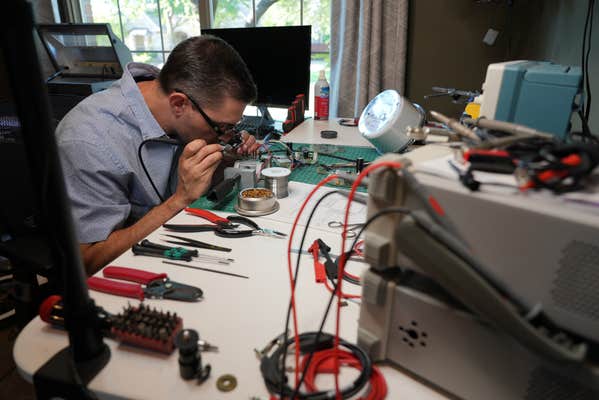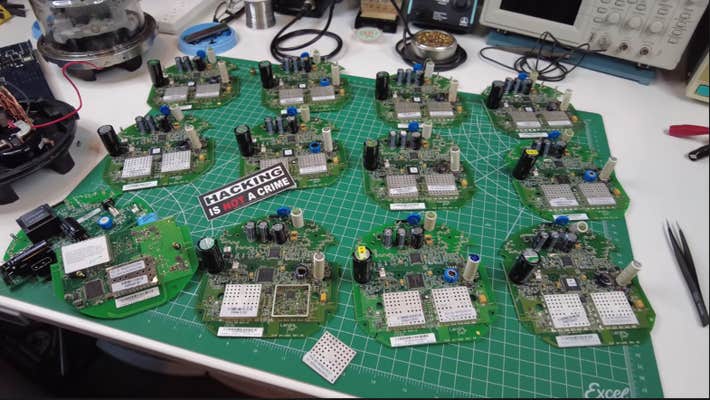
Breaking News
 Closing in on How Charlie Kirk Was Assassinated
Closing in on How Charlie Kirk Was Assassinated
 Here's a little song I just wrote. Dedicated to Al Gore.
Here's a little song I just wrote. Dedicated to Al Gore.
 Judge Blocks Executive Order Tightening Voter-registration Requirements
Judge Blocks Executive Order Tightening Voter-registration Requirements
 ALEX JONES' EXCLUSIVE EPSTEIN DOJ MEGA DOCUMENT DUMP ANALYSIS:
ALEX JONES' EXCLUSIVE EPSTEIN DOJ MEGA DOCUMENT DUMP ANALYSIS:
Top Tech News
 Critical Linux Warning: 800,000 Devices Are EXPOSED
Critical Linux Warning: 800,000 Devices Are EXPOSED
 'Brave New World': IVF Company's Eugenics Tool Lets Couples Pick 'Best' Baby, Di
'Brave New World': IVF Company's Eugenics Tool Lets Couples Pick 'Best' Baby, Di
 The smartphone just fired a warning shot at the camera industry.
The smartphone just fired a warning shot at the camera industry.
 A revolutionary breakthrough in dental science is changing how we fight tooth decay
A revolutionary breakthrough in dental science is changing how we fight tooth decay
 Docan Energy "Panda": 32kWh for $2,530!
Docan Energy "Panda": 32kWh for $2,530!
 Rugged phone with multi-day battery life doubles as a 1080p projector
Rugged phone with multi-day battery life doubles as a 1080p projector
 4 Sisters Invent Electric Tractor with Mom and Dad and it's Selling in 5 Countries
4 Sisters Invent Electric Tractor with Mom and Dad and it's Selling in 5 Countries
 Lab–grown LIFE takes a major step forward – as scientists use AI to create a virus never seen be
Lab–grown LIFE takes a major step forward – as scientists use AI to create a virus never seen be
 New Electric 'Donut Motor' Makes 856 HP but Weighs Just 88 Pounds
New Electric 'Donut Motor' Makes 856 HP but Weighs Just 88 Pounds
 Donut Lab Says It Cracked Solid-State Batteries. Experts Have Questions.
Donut Lab Says It Cracked Solid-State Batteries. Experts Have Questions.
Exclusive: Hacker reveals smart meters are spilling secrets about the Texas snowstorm

Power companies across Texas have refused to disclose which areas of the state were exempt from controlled blackouts after a devastating snowstorm crippled the power grid in February—but one hacker has found that smart meters, the electrical devices on the sides of homes and businesses that monitor energy consumption, are quietly broadcasting data that could be used to determine what infrastructure may have been protected.
In the days following the historic freeze, companies tied to the state's privately-run grid were met with pressing questions from citizens and lawmakers alike over how it was decided who would and who wouldn't be plunged into darkness.
A Dallas-based hardware hacker and security researcher known as Hash first noticed one such refusal in early March from Austin Energy, a publicly-owned utility provider in the Texas capital.

Austin Energy has continually argued that disclosing what infrastructure it allowed to remain operational, such as hospitals and 911 call centers, could make the city and by extension its more than 1 million residents vulnerable to cyberattacks.
"We are not able to provide that information since it's protected critical infrastructure information," Austin Energy spokeswoman Calily Bien told the Austin American-Statesman at the time.




